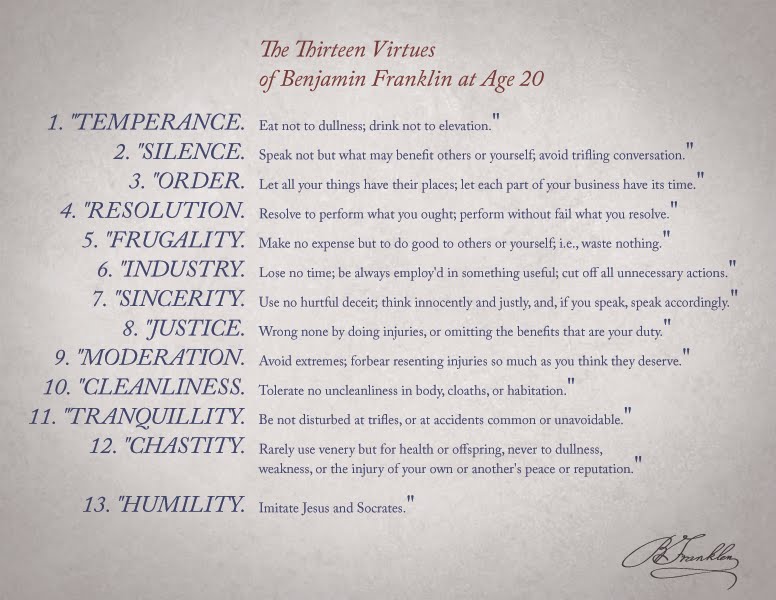Young girls, beware.
Someday you will grow up and enter the dating world. The young men who come into your life will have a variety of names. I plead with you to only date those who have names you would never consider for a future child. So many of us are suffering the regret of having dated a young man with a wonderful name… a name we have placed a self-imposed ban on if not for our own sake than for the sake of our husbands.
I mean, really. If my husband had named our daughter after one of his lady friends, I would be, in the very least, disgruntled.
I wish I would have known when I was 16 that I would spend the majority of my life in a mild state of obsession over a man named Benjamin Franklin. When I was 16, I dated a Ben.
I would give anything to name a future son Ben, but my husband has other ideas (see “disgruntled” above).
Last year, my Aunt Ruth and I had the opportunity to visit. I don’t recall ever having had a visit with JUST Aunt Ruth ever before. Her and I sat on my Aunt Julie’s bed, leafing through a three-ring binder she had complied. It was full of family history: pictures, stories, charts…
We talked about our ancestors. We talked about teaching. We talked about marriage.
And then she told me something that changed my life forever.
I am a direct descendant of Benjamin Franklin’s sister.
DO YOU KNOW WHAT THAT MEANS?!?!
He is, in very fact, my Uncle Ben a million times removed… all the more reason to use his name for one of my future sons.
In any case, I was doing some research yesterday. I came across Benjamin Franklin’s 13 virtues.

(image via lexrex.com)
Temperance: Eat not to dullness; drink not to elevation
Silence: Speak not but what may benefit others or yourself; avoid trifling conversations
Order: Let all your things have their places; let each part of your business have its time
Resolution: Resolve to perform what you ought; perform without fail what you resolve
Frugality: Make no expense but to do good to others or yourself; that is, waste nothing
Industry: Lose not time; be always employed in something useful; cut off all unnecessary actions
Sincerity: Use no hurtful deceit; think innocently and justly; speak accordingly
Justice: Wrong none by doing injuries or omitting the benefits that are your duty
Moderation: Avoid extremes; forbear resenting injuries so much as you think you deserve
Cleanliness: Tolerate no uncleanliness in body, clothes or habitation
Tranquility: Be not disturbed at trifles or accidents common or unavoidable
Chastity: Rarely use venery but for health or offspring; never to dullness, weakness, or the injury of your own or another’s peace or reputation
Humility: Imitate Jesus and Socrates
You can bet I’m printing several copies of his list out. I’ll put them on my fridge, on my bathroom mirror, in my scriptures, in my church binder, and in my car -forever reminders to do better.
His words next to humility (imitate Jesus and Socrates) sent me on yet another search.
Do you know who Socrates is? I didn’t. I mean, I knew OF Socrates, but I didn’t know ABOUT Socrates. He is quoted as saying “I know I know nothing.” He was heralded as the wise man -yea, even the WISEST. He denied it, insisting he had no wisdom. That simple fact alone -the fact that he was aware of his own ignorance -made him undoubtedly the wisest man.
He challenged men with questions, and by so doing humiliated a few publicly. It didn’t earn him any friends, and eventually he was condemned to die (by drinking poison).
He had a chance to escape prison, but he insisted on staying for several reasons:
(Thanks be to Wikipedia)
Xenophon and Plato agree that Socrates had an opportunity to escape, as his followers were able to bribe the prison guards. He chose to stay for several reasons:
1)He believed such a flight would indicate a fear of death, which he believed no true philosopher has.
2)If he fled Athens his teaching would fare no better in another country as he would continue questioning all he met and undoubtedly incur their displeasure.
3)Having knowingly agreed to live under the city’s laws, he implicitly subjected himself to the possibility of being accused of crimes by its citizens and judged guilty by its jury. To do otherwise would have caused him to break his “social contract” with the state, and so harm the state, an act contrary to Socratic principle.
Also: he felt like it was his time to die -that it might be better to die than live.
Isn’t his logic sound and wonderful and a little mind blowing?! I mean, given the chance to escape death, what would you do? Thank goodness Socrates wasn’t the star of “Prison Break” or the series would have been over in a few short episodes, and the public would be disgruntled.
Maybe I should have titled this post “disgruntled.”
Really I just wanted you to have Ben Franklin’s 13 virtues, and I wanted a little sympathy on the “you-can’t-name-your-son-Ben” front. That said, ciao.

(image via ryanflemingmakes.blogspot.com)

Speak Your Mind